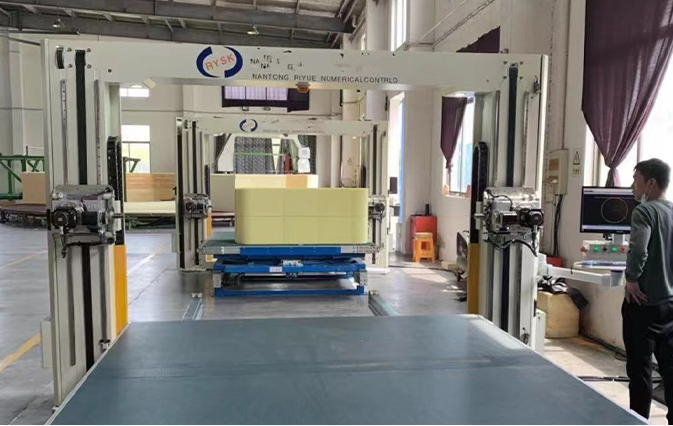Effective Solutions for Preventing Pressure Ulcers with Specialized Mattresses
Understanding Anti-Decubitus Mattress Products A Comprehensive Guide
In today's healthcare landscape, where the well-being of patients is paramount, particularly for those confined to bed for extended periods, anti-decubitus mattresses have emerged as a critical component in pressure sore prevention and management. Also known as pressure-relieving or therapeutic mattresses, these innovative products are designed to distribute body weight more evenly, minimizing pressure on vulnerable areas and improving overall comfort. This article aims to explore the significance, types, and benefits of anti-decubitus mattresses, helping caregivers and patients make informed choices.
The Importance of Anti-Decubitus Mattresses
Decubitus ulcers, commonly referred to as bedsores or pressure sores, are injuries to the skin and underlying tissue that occur when sustained pressure prevents blood flow to the area. These lesions primarily develop over bony prominences such as the heels, sacrum, and elbows. They pose significant health risks, including infection, pain, and prolonged hospital stays, which can hamper recovery.
The use of anti-decubitus mattresses plays a pivotal role in preventing these wounds. By redistributing pressure and enhancing blood flow, these specialized mattresses help maintain skin integrity and promote comfort for individuals spending considerable time in bed, such as those with limited mobility due to surgery, chronic illness, or advanced age.
Types of Anti-Decubitus Mattresses
Anti-decubitus mattresses come in various types, each offering unique features to meet different needs
1. Air Mattresses These mattresses use a system of air chambers that can be inflated or deflated to create alternating pressure. By changing the pressure on different parts of the body, they help stimulate blood flow and reduce the risk of pressure sores. Air mattresses are particularly beneficial for patients at high risk of developing bedsores.
2. Foam Mattresses Made from high-density foam, these mattresses conform to the body’s shape, providing support while reducing pressure points. Some foam mattresses incorporate viscoelastic or memory foam for enhanced comfort. These are often more affordable and easier to maintain compared to air mattresses.
3. Gel Mattresses These combine foam layers with gel inserts to offer additional pressure relief and temperature control. Gel mattresses are designed to provide a cooler sleep surface, which can be particularly beneficial for individuals who experience discomfort due to heat retention.
anti-decubitus mattress products

4. Hybrid Mattresses Featuring a blend of different materials, hybrid mattresses offer the benefits of both foam and air technology. They are engineered to provide optimal support, comfort, and pressure relief, making them a versatile option for various patient needs.
Benefits of Using Anti-Decubitus Mattresses
Investing in an anti-decubitus mattress can yield numerous benefits
- Prevention of Pressure Ulcers The primary benefit of these mattresses is their ability to prevent bedsores. Regular use significantly reduces the incidence of pressure ulcers, which can lead to serious complications.
- Enhanced Comfort Anti-decubitus mattresses are designed to provide a more comfortable sleeping experience, reducing pain and discomfort for patients lying in bed for long periods.
- Improved Circulation By redistributing pressure and promoting blood flow, these mattresses help enhance circulation, which can aid in recovery for individuals with existing health issues.
- Easier Care Management Many anti-decubitus mattresses are designed with removable and washable covers, making maintenance simple and hygienic. This feature is essential for caregivers managing multiple patients or individuals with hygiene concerns.
Conclusion
As healthcare continues to evolve, the importance of promoting patient comfort and preventing complications like pressure ulcers cannot be overstated. Anti-decubitus mattresses represent a significant advancement in addressing these needs. By understanding the various types and benefits of these products, caregivers and patients can make informed decisions that enhance patient care and improve quality of life. Whether considering an air, foam, gel, or hybrid mattress, the right choice can be pivotal in ensuring comfort and preventing serious health issues related to prolonged bed rest.
-
The Effect of Coconut Foam Mattress Breathability and Humidity Regulation on Improving Sleep QualityNewsJul.03,2025
-
How Wave Mattress Systems Improve Blood Circulation During ImmobilityNewsJul.03,2025
-
The Climate-Adaptive Sleep Revolution: Exploring the Benefits of Cooling Gel Memory Foam MattressesNewsJul.03,2025
-
Exploration of the Role of Coconut Foam Mattress in Preventing Bedsores in the ElderlyNewsJul.03,2025
-
Comparing Wave Mattress and Air Mattress: Which Is Better for Medical Use?NewsJul.03,2025
-
Analysis of Comfort and Environmental Performance of Natural Latex and Coconut Foam MattressNewsJul.03,2025
-
Multi-Layer Construction for Enhanced Performance in Gel Mattress PadNewsJun.24,2025

